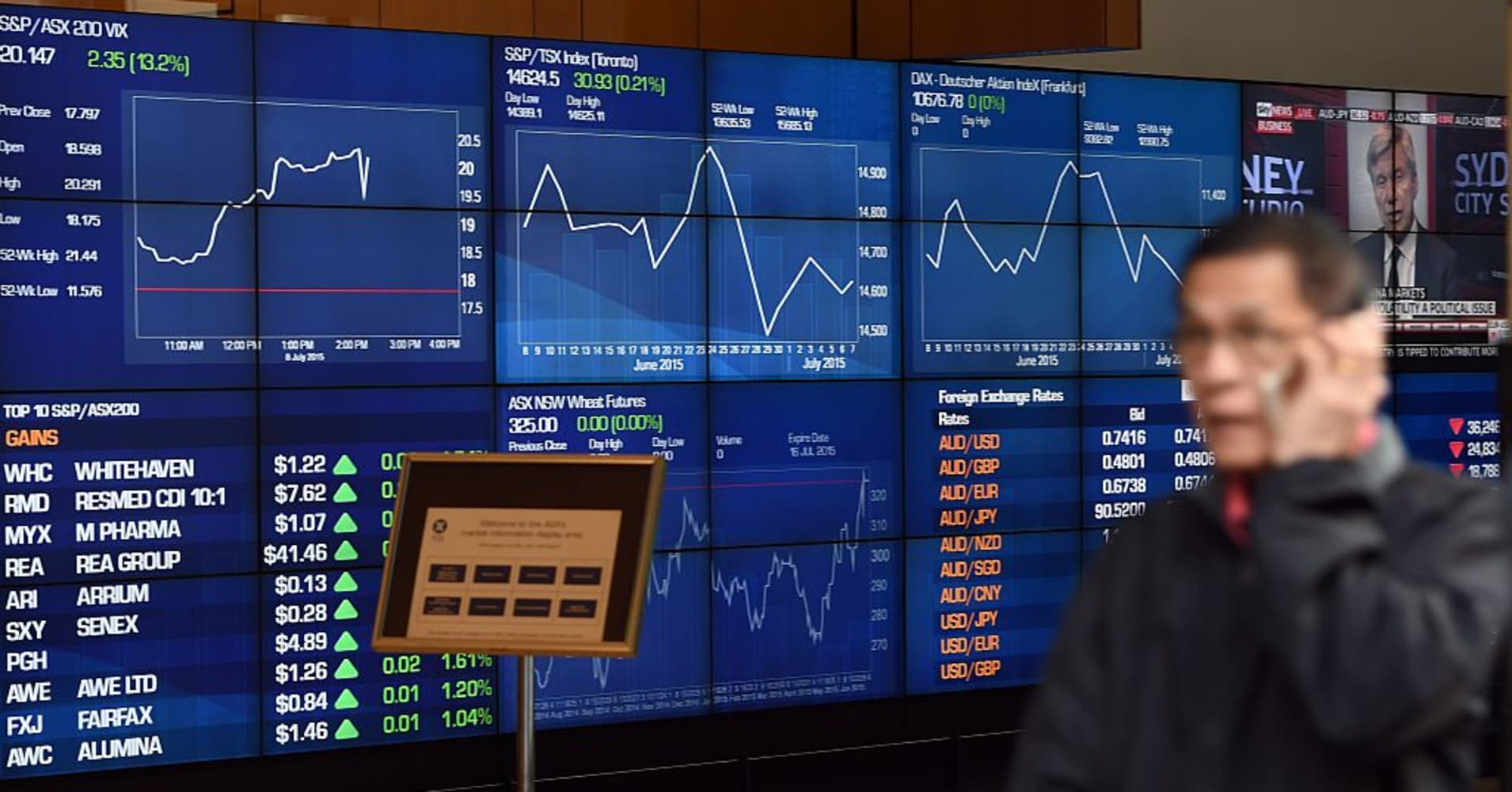
Australian stocks were lower in their early Monday trade, following last week's market turmoil stateside.
The ASX 200, which closes at 11:10 a.m HK/SIN today ahead of the upcoming Christmas holiday, slipped 0.67 percent in early trade, with all sectors seeing declines.
The heavily weighted financial subindex declined 0.76 percent in morning trade, as shares of Australia's so-called Big Four banks fell. Australia and New Zealand Banking Group slipped 0.43 percent, Commonwealth Bank of Australia shed 0.2 percent, Westpac dropped 1.59 percent and National Australia Bank declined by 0.39 percent.
The Japanese markets are closed for a public holiday.
The Chinese markets, closely watched worldwide amid Beijing's trade spat with Washington, are set to open at 9:30 a.m. HK/SIN.
China's Ministry of Commerce said on Sunday that vice-ministerial level talks on issues such as the balance of trade and strengthening of intellectual property protections had been held earlier with the U.S. last week.
In a statement posted on its website, the ministry said the two sides had a "deep exchange" of views and achieved new progress. It also said both parties held discussions around their next call and the reciprocal visits.
In market action stateside, Dow Jones Industrial Average futures slipped in early trade on Sunday evening. S&P 500 futures also declined.
The moves came on the back of a tumultuous week which saw the Dow experiencing its worst week in more than a decade.
The Dow lost 1,655 points, or 6.8 percent, last week for its worst week since October 2008 during the financial crisis. The S&P 500 lost 7 percent for the week and is now down 17.8 percent from its record reached earlier in the year, putting it on the brink of a bear market. The Nasdaq Composite Index is now 22 percent below its record reached in August, a bear market.
Last week, the U.S. Federal Reserve raised its benchmark interest rate for a fourth time this year and Chairman Jerome Powell signaled the central bank would continue to unwind its balance sheet at the current pace, two monetary tightening actions that traders say are driving the stock market declines.
The U.S. dollar index, which tracks the greenback against a basket of its peers, was at 96.906 after seeing highs above 97.4 last week.
The Japanese yen, widely seen as a safe haven currency, traded at 111.07 after touching lows around 113.5 in the previous trading week. The Australian dollar was at $0.7045 after seeing highs around $0.720 last week.
— CNBC's John Melloy contributed to this report.
No comments:
Post a Comment